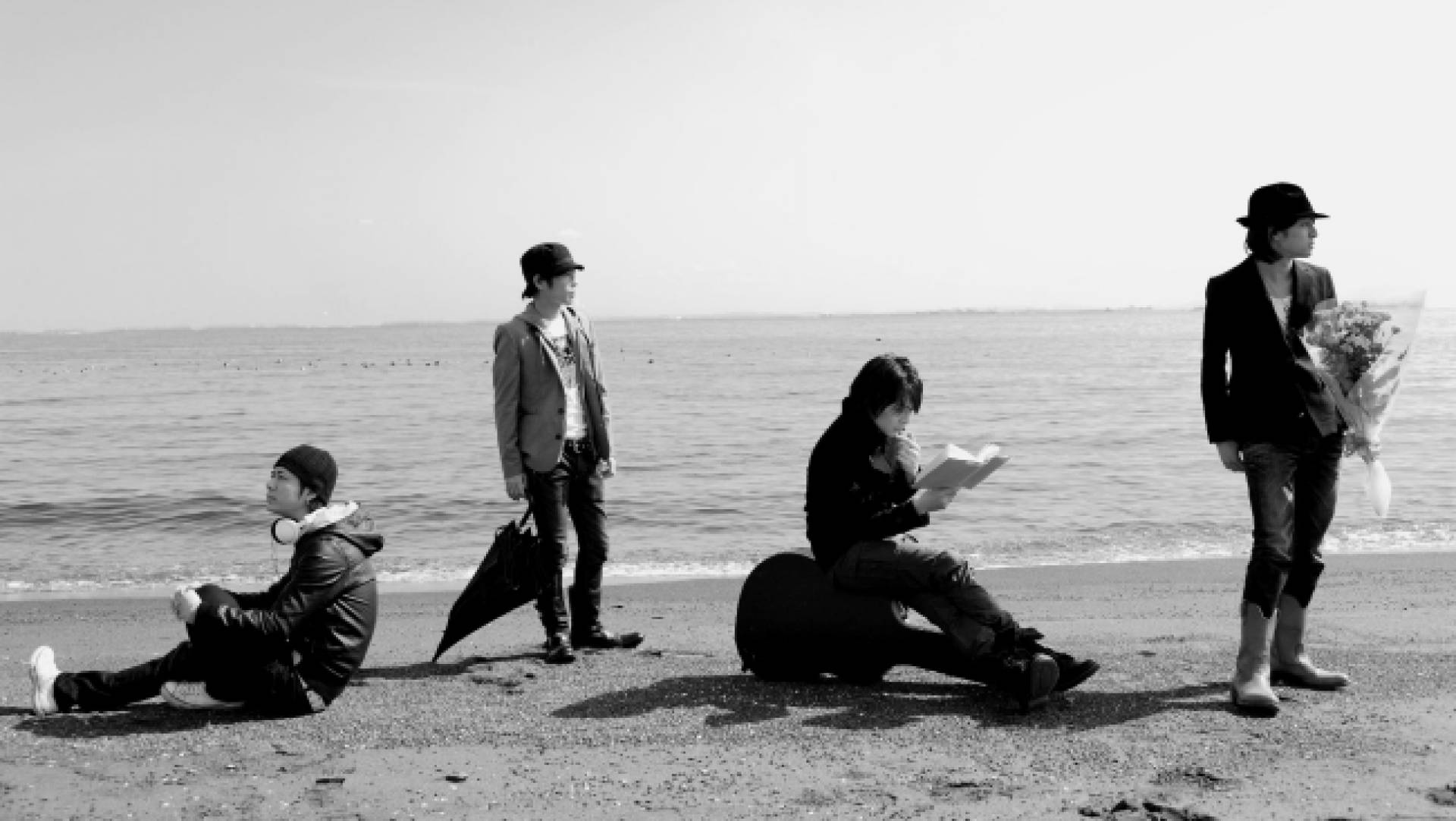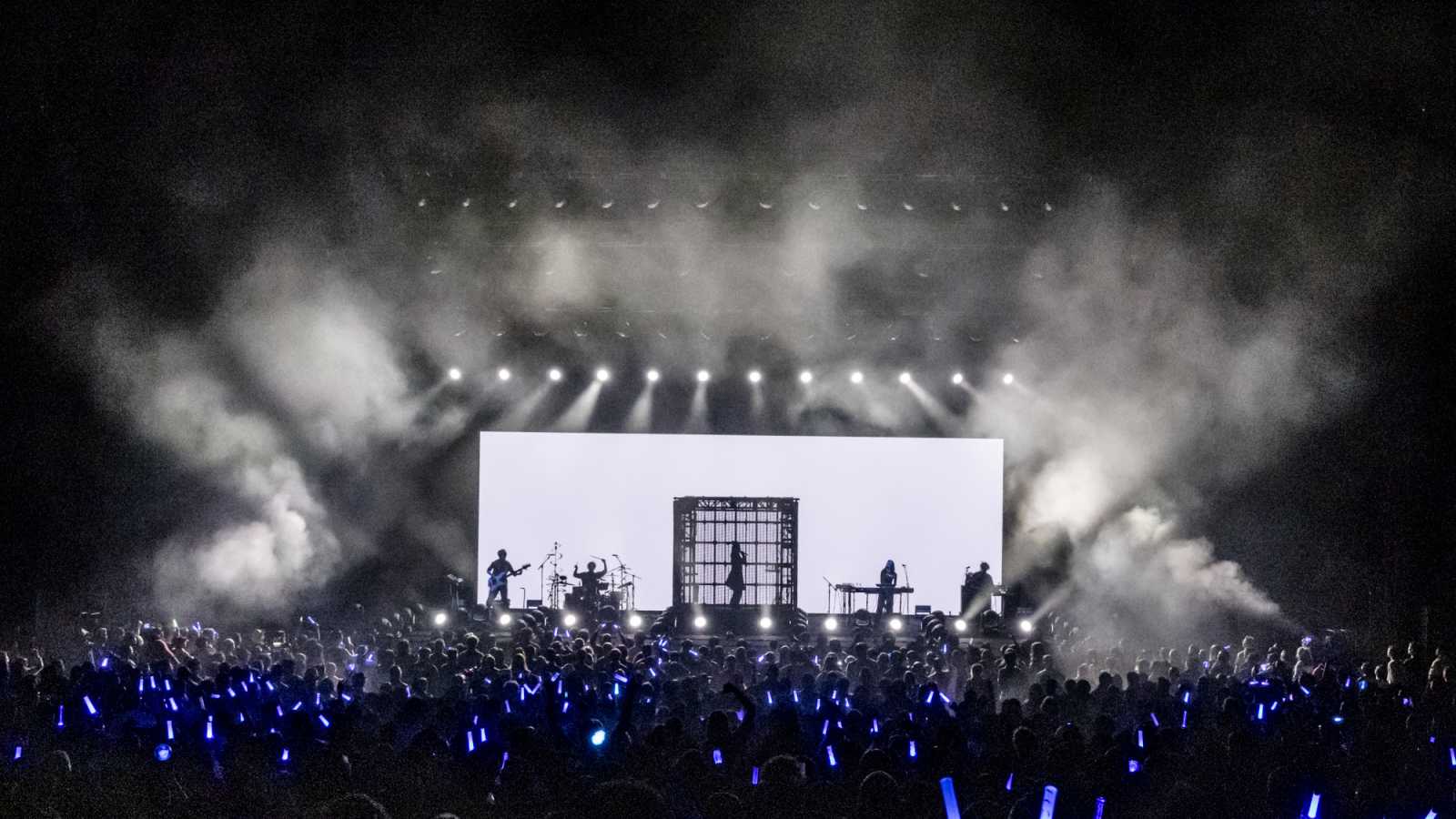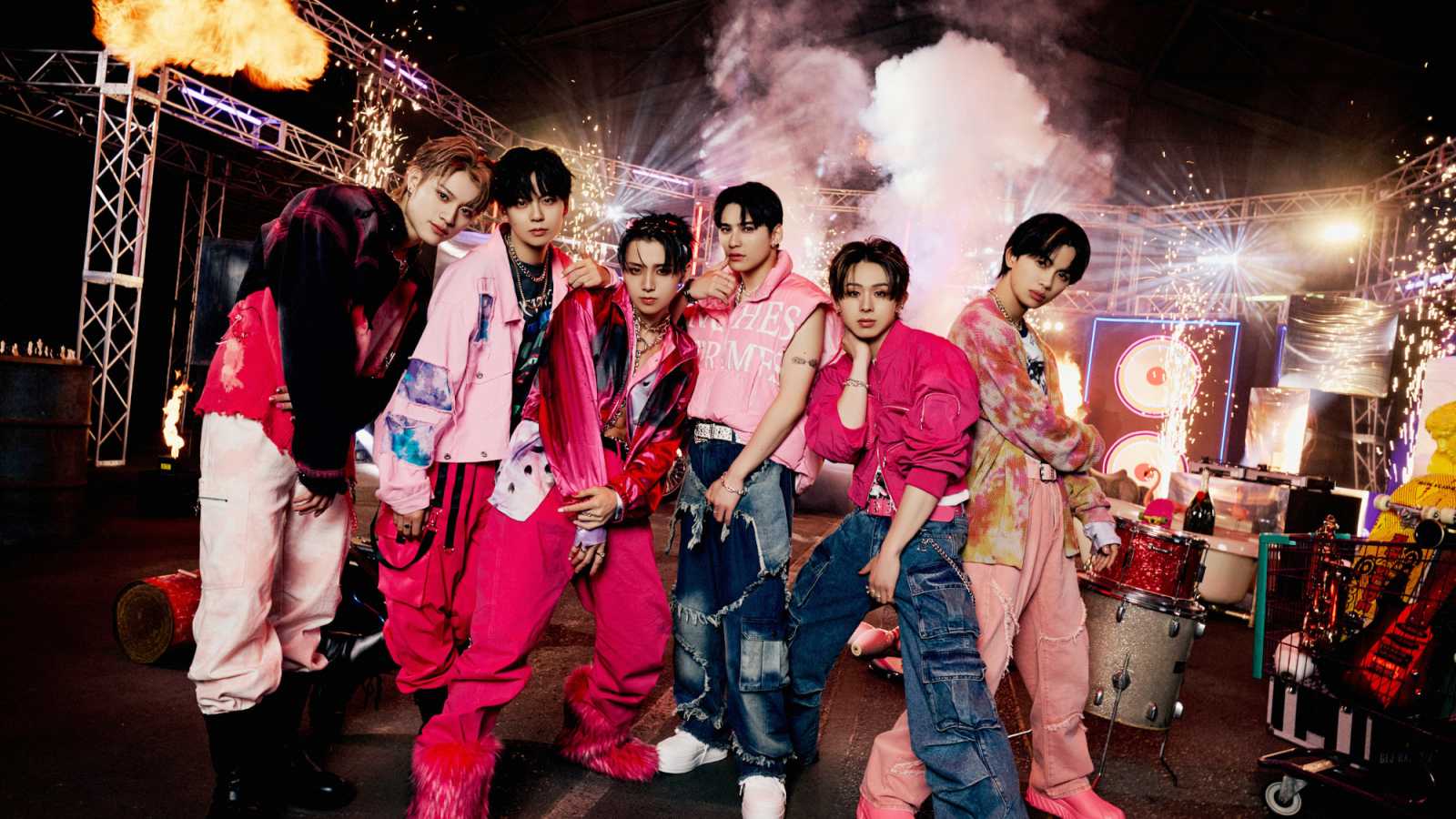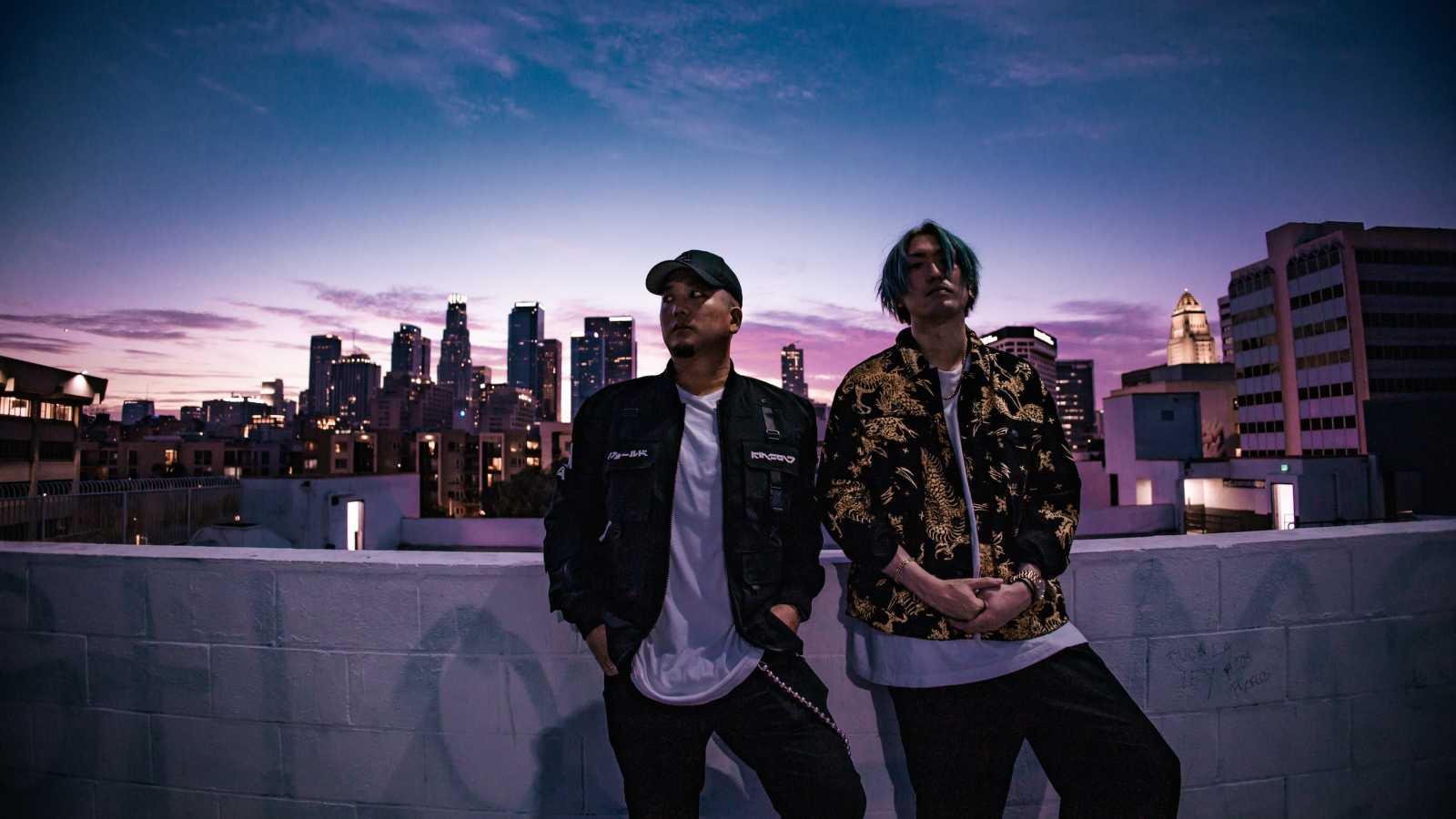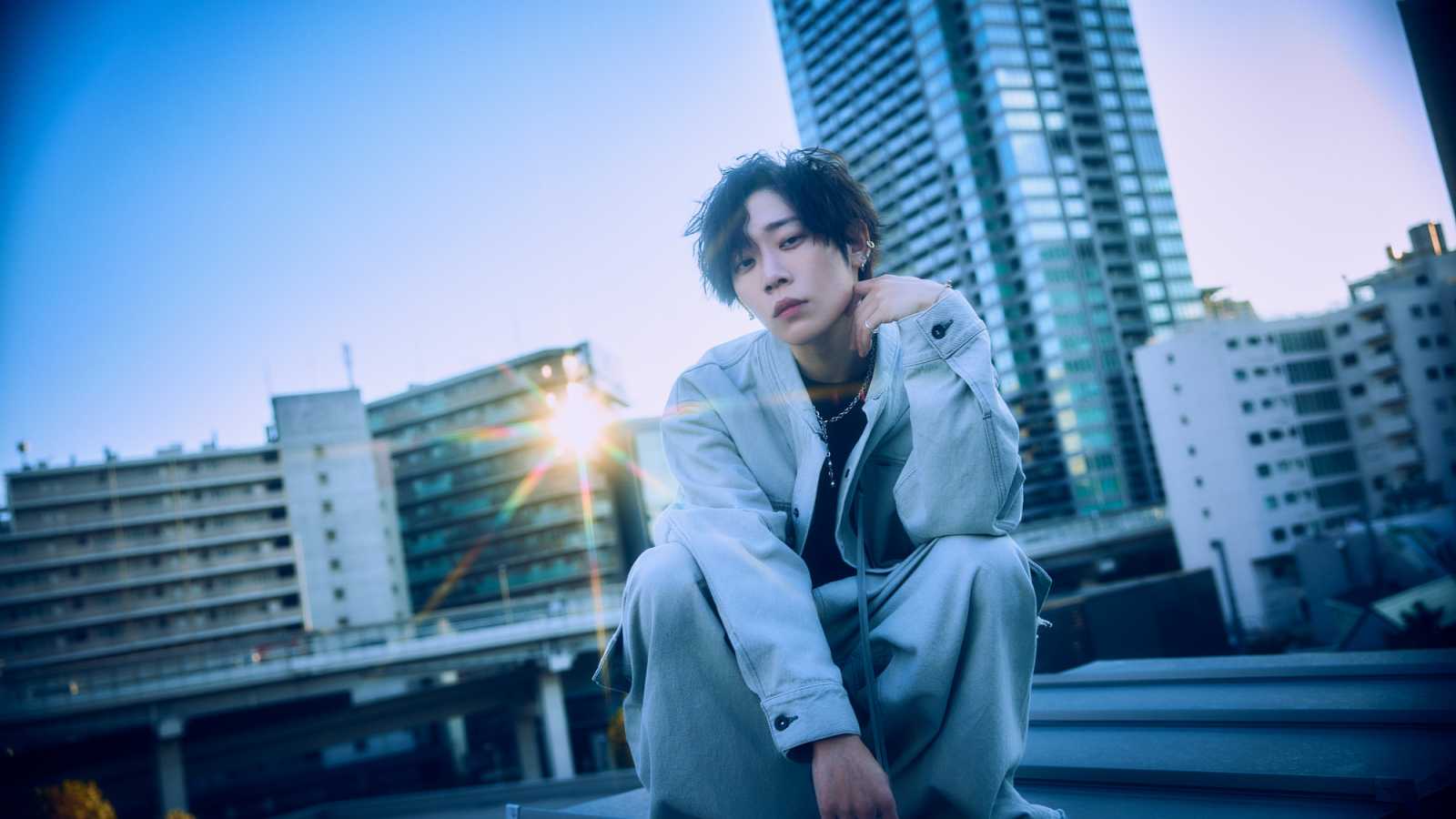Though a fairly new band, each member of
Needless Lyrics has plenty of experience in music. JaME was able to catch up with them before they began their summer activities to chat about the creation of the band's name, the recording of their first album and more.
Could you introduce yourselves, please?
Mizuki Sakagami: I’m the vocalist,
Mizuki Sakagami.
Yuta Amari: I’m the bassist,
Yuta Amari.
Seiichiro Hayakawa: I’m drummer,
Seiichiro Hayakwa.
Daisuke Sato: I’m guitarist,
Daisuke Sato. It’s nice to meet you.
What is the meaning of the name Needless Lyrics? It means “unnecessary lyrics,” but you seem to hold your lyrics very dear, so it’s kind of contradictory.
Yuta: When I was thinking about the band name, I thought of “Needful things,” “Needful Lyrics” and so forth. As you know, what we started thinking of and what we ended up with are totally opposite in meaning. When we decided to play with
Mizuki, I wasn’t sure what kind of lyrics he would write, so I asked him, “What kind of lyrics do you want to sing?" He said, “I just want to sing positive things as much as possible,” so I thought, “Ah, I see. He is particular about what he sings after all.” But if I was to have given the name “Needful Lyrics,” it would have seemed pushy - like we were insinuating something. (laughs) I didn’t want to say "Lyrics are
really important.” So, I named the band something quite the opposite, with the meaning of “Even if they are unnecessary to you...” My personality is a little bit warped like that. (laughs)
Were you being modest?
Yuta: Yes. Well, if I made a direct translation, it means “unnecessary lyrics,” but we wanted such “unnecessary things” to become “necessary things,” so we decided to use the name. Music is not like food, clothing or shelter, since we can live without it, right? However, we believe in the power and miracles that music brings, so we created this oppositional name to highlight this.
Did everyone agree with the band name?
All: Yes.
Your lyrics are positive; they cheer us up and give us the strength to work hard. Did you write them to persuade yourself, too?
Mizuki: Yes, I think so. I think that if we are not cheered up by our music, then listeners won’t be either.
Could you tell us how the band was formed? When was it decided that Mizuki would join you as vocalist?
Seiichiro: Around November of last year?
Yuta: No... I think when I decided to play with him, it was later than that. I think it was some time in January this year?
Seiichiro: However, we met once in November and talked about it, right?
Yuta: Honestly speaking, when our former band disbanded, I thought about whether I should continue or not. At that time, we had a meeting to select songs, and the songs that
Daisuke and I brought were
Period and
Kitari, so we were already heading off into different directions. At the same time,
Junpei and
Masamitsu had decided to leave the band, so we started to look for a vocalist that was heading in the same direction and wanted to continue together with us. We searched high and low, holding auditions again and again, but we couldn’t find anyone for a long time. (laughs)
Our last live was September 26th, but we had started searching long before then. Actually, we wanted to announce that we had found someone by the live of September 26th, but that wasn’t possible. We kept making songs and thought that if we could find a good vocalist, we would eventually make it. Then we had a talk about
Mizuki, as
Daisuke had played with him before, and
Mizuki wasn’t playing music at that time. So, we asked him to sing our demo tapes and thought, “He would be good.” It was not like “Oh, he is good!” - it was more like “Um... I wonder if it would work?” He was living in Hokkaido, so we asked him to come to Tokyo and talked with him once, and things started from there. Then,
Sei-chan (
Seiichiro) and I thought “He is good.” (laughs)
Seiichiro: I’m a simple guy. (laughs)
So you clicked pretty quickly, right?
Seiichiro: Yes, that’s right. (laughs) I could feel that
Mizuki wanted to sing, especially after such a long time. We didn’t want someone who would only sing our songs half-heartedly.
About how long was his hiatus from singing?
Mizuki: More than five years. I usually don’t go to karaoke, so I rarely had the occasion to sing.
But you had wanted to sing for a long time, right?
Mizuki: Yes.
When you sang songs that Yuta and Daisuke brought in, were you able to get into the songs smoothly?
Mizuki: Yes. I don’t pride myself on my voice, but I had been thinking that I could do something with my voice since my former band. I thought that if I sang, the songs could become better. When I listened to the songs on the demo tapes, I thought that they were great, even though I hadn’t sung them yet. I just felt a little unease about the fact that I had not yet talked with
Sei-chan and
Yuta that much, except when we met that one time; but I had a lot of confidence about the songs.
Did you make songs yourself?
Mizuki: Not at all. I’m just a normal member of society... (laughs)
So, you started to make music and lyrics after you started playing with them?
Mizuki: Yes.
All of the songs from the first album Needless Lyrics
, which was released on May 13th, are wonderful with beautiful melodies. The lyrics really soak into your heart, so I think that a wide range of people can listen to them. I was surprised at the vocals, which had totally changed from the former band's.
Mizuki: I had thought for a long time that something neutral would be rather popular, and more people of a wider age range could listen to them, just like how popular artists are usually females. When I was asked to play with them, I wanted to play too. And the songs were very good, so I was convinced that everything would go well. I’m very happy you felt that while listening to our songs.
Yuta: He is so positive for no reason at all.
All: (burst out laughing)
Yuta: When we hadn’t done anything, even when we hadn’t played together yet, he started to talk like, "We are already doing well! I am convinced this is going to be good!" (laughs) So I said, “What are you talking about? We haven’t even decided to play with you yet.” (laughs)
Seiichiro: (laughs)
Yuta: We didn’t have a lot of positivity until then, as we can be rather negative.
All: (burst out laughing)
I think Mizuki really clicked with you. You had known Daisuke prior to joining the band, hadn't you?
Mizuki: Yeah... I knew about him... (laughs)
Your debut album Needless Lyrics
was released on May 13th. About the composition of songs, Mizuki wrote lyrics for the songs which either Yuta or Daisuke composed. Did you exchange the music data with each another?
Yuta: Yes.
Daisuke went back to Hokkaido for a while, and I was staying in Tokyo, so we exchanged music data with each other. The main songs were
Period,
Kirari and
But I believe…., and these three songs were made around the time
ACID ended. Then we could recognize the direction we wanted to go in. Other songs were made after that. There are eleven songs on this album, but we had a lot of songs besides those - but we chose them after it was determined that
Mizuki would be our vocalist. I think that we made songs not knowing who would sing them, so that was quite difficult. For example, when you make songs for someone you know, it’s easier since you know his/her voice; but when you don’t, it’s harder as you don’t know the register of the vocalist and the key of his/her voice. For me, I really trusted the songs that
Daisuke makes, so that helped me to work hard on mine too.
Mizuki, did you write lyrics after you listened to the songs?
Mizuki: Yes, with the songs that
Yuta and
Daisuke made. But there were also some songs where
Daisuke sang by himself.
Yuta: In most of our cases, we put temporary lyrics to our melodies. We make songs almost completely, and we sing songs by ourselves. In the cases I could imagine, I put lyrics in by myself, so I put almost the same lyrics on the demo songs of
Period and
But I believe….. When I have clear images, I write by myself. But sometimes, I just put "lalala..." during the melodies. When I can’t imagine the lyrics, I ask
Mizuki, “What do you think? Then, he might say, “I think I could write good lyrics,” so I leave them to
Mizuki.
Wasn’t it hard to select songs? From about how many songs did you select the eleven songs?
Yuta: In my case, I make demo songs and choose songs by myself as I mull over what I could make the others listen to. I have many ideas. When I think “Ah, I hit on a good melody,” I record it, and I stock such melodies and guitar phrases. However, something I thought to be good at the time sometimes doesn't sound so good later, so I leave them and listen to them once again, develop the images in my head and create the shape of a song. So, I had more ideas, but what I brought in to select from was actually... (turning to other members) not so much, right?
So choosing songs wasn’t so difficult?
Yuta: Yeah. I think I made and sang five other songs.
Daisuke also made several more songs, and we selected eleven songs from them.
Were you able to determine the order of songs quickly?
Seiichiro: We thought about the order a lot. We had quite a few patterns, and any pattern seemed to be good. But we all decided on this order in the end.
Was the first track, The beginning~instrumental
, made later?
Yuta: Actually, earlier. (laughs) You know the intro part of
A letter to parents? When you open our homepage, it plays, and I made only that part first. But I thought I could make it better, so I worked on it, making it longer, and made the song
A letter to parents.
How was the recording? Did it go smoothly? Did you have any funny episodes?
Daisuke: Problems... we had some. (laughs) Basically, we record by ourselves. Well, the episode that we had never had before was... the contents we had recorded disappeared. (laughs)
The data went away?
Daisuke: We saved them like, “We did it by ourselves, too!”
All: (burst out laughing)
Like, “We can get them back safely!” (laughs)
Daisuke: It was really good that we were able to recover and send them to you. (laughs)
Seiichiro: Each time, our recording period is very short. This time it was especially tight, and I had to play ten songs in two days. (laughs) I somehow managed to do it. I had various things that I wanted to try this time. As you know, there are different kinds of songs this time, from driving songs to soft ballads. So I changed the drum set song by song - that was a first for me.
Did you? Though you can’t do that in your lives, can you?
Seiichiro: No, I can’t. So I’m thinking about what I‘m going to do about lives. (laughs)
Well, you would be better having a bigger set, no?
Seiichiro: Yeah. And then I suppose it really comes down to this! (He slaps his arm.)
All: (burst out laughing)
I’m looking forward to seeing you then.
Yuta: They were different from the hard Western songs that we had played up until then. We didn’t intend to do it like that, it just happened. When it was determined that the vocalist would change, everything changed, and we got a stronger image. It's natural that we shifted from doing only hard songs. For this album, it’s like we put eleven separate singles into one album, rather than trying to get a balance between all of the songs. For example, if the song was a ballad, we would concentrate on making a sound that was for a ballad. We didn’t try to match it to other songs on the album. I also experimented with using bass sounds: I usually only use one bass, but this time I used two.
You used piano, keyboard and other various sound effects; It feels like your sound has broadened.
Yuta: To be honest, I wanted to invite a pianist to be a member of the band because I put piano into demo tapes a lot. However, I didn’t want to invite too many people, but I thought it would be something different to have a pianist and another guitarist, making us a six member band. But recently, I also thought that the band would be better with fewer members, so I asked around for a good manipulator and we were introduced to
Masaki, who is an acquaintance of
Seiichiro, and let him listen to our demo tapes. We all went to his house to work with him on the piano and strings. I had never done such work until then, so it was really fresh. It made me wish that I played piano...(laughs)
I can really feel that you made the vocals stand out in each song, but did you change the way you played your instruments or how you listen to your music?
Seiichiro: I totally changed. I had played heavy songs up until now, but this time the musical approach was totally opposite, so it was hard, honestly speaking.
Yuta: I haven’t changed so much. I have never really played bass aggressively, but I basically make the vocalist stand out. My style is not to interfere with the vocals, but more to accent them. This time I thought about various things, but what I think we will have to focus on is that we haven’t played songs at our lives yet. Previously, we put songs which we had already done at lives onto our album. But this time, we played all of the songs in recording for the first time, so they still needed some shaping. When we played in rehearsal, I got the rough gist of the songs, but as I actually played them, I began to want to change things and do more, so I recorded many takes, which was kind of unexpected. It got to the point where I found it hard to decide which take to choose.
What about Daisuke?
Daisuke: Up until now we played as twin guitars, but I used more guitars this time then ever before. (laughs) I used four to six guitars on some songs. (laughs)
Seiichiro: We wonder about what we are going to do in our lives…. (laughs)
It could be good to keep things simple, right?
Daisuke: Yes. Basically, two guitars play the same thing, or four guitars play the same thing, and I add sounds that are similar, so I could play alone if I tried…..I think that I have many extra sounds that I don’t really need.
All: (burst out laughing)
What about Mizuki? Did you think about how you would sing each song?
Mizuki: Yes, but foremost I didn’t want to strain myself too much. Of course, I listened to music of
ACID, and I knew that the members wanted to do something totally different, so I sang in a totally different way. I hadn’t sung for a while, so I recorded several times until I was satisfied, but I wasn’t really conscious about “I should sing this song like this.” But there is a larger scope on this album, from
Kirari, which is a real driving song, to
Namidagoe, which is a pure ballad. I just thought that if I could put in my taste, listeners would get to know my voice. Besides that, I cared about basic things, like “I shouldn’t sing out of tune” or “I have to care about the rhythm.”
I know you are a good singer.
Yuta: No~~~~ not yet.
All: (burst out laughing)
Yuta: We’ll train him.
Yuta, why did you come up with the song A letter to parents
?
Yuta: This song was actually only going to be an intro. I think that when I made it, I had an image of Western music. When we listened to the intro, the image that came to us was like an advertisement for a movie or something (laughs), so I almost put in English lyrics because I thought English lyrics would be better for this song. And then around that time, I just happened to go back to my parents' home, and I talked with my mother about various things we had experienced over time. Then I felt that my mother was somehow small. I know that sounds rude, but I realized that she won’t always be around. Another 20 to 30 years, perhaps? When I talked about my memories, I couldn’t remember many things except bad things, unfortunately. When I was a teenager, I fought with my parents, and actually I was pretty bad, so when I talked with them, I couldn’t really remember many happy memories. I thought that it was kind of sad and cried a little, and I thought that I really want to do something, leave something behind. When you are a teenager you are kind of emotional right? I wasn’t thankful for my parents, and honestly speaking, I didn’t really like them. But I got older, I became an adult who could be a parent, and I realized that my parents were great. I wanted to make a song putting the gratitude that I now felt into it. I was able to write it very smoothly, it took only about two hours.
How were your parents when they actually listened to the song?
Yuta: Ah~ they weren’t moved at all.
All: (burst out laughing)
Yuta: We often say “Children don’t know the minds of the parents.” But in my case it was the opposite, like “Parents don’t know the mind of their child.” (laughs)
Oh, no! I think they are moved to tears, they just did not show you.
Yuta: My mum said “Please don’t write
wrinkled smile' in the lyrics! Why did you write 'wrinkled'? I don’t like that part!”
All: (burst out laughing)
Seiichiro: I can’t rank the order of our songs because I like every song, but for me, I really like this song. In this age, there is a lot of sad news, like parents who abuse their children. It seems that the relationship between parents and children is becoming weaker, so I think the lyrics of this song are straight and honest. I thank my parents so much, too, and this song really matches and links the feelings. I think many people can sympathize with this song.
It can be difficult to thank our parents, even when we want to say so.
Seiichiro: Yeah, I think so!
You really express a lot in this song. If we were able to play it in a wedding, I think everyone would be moved to tears.
Seiichiro: Yes, yes, yes! You are right!
Yuta: I’m a man, so I hardly say “thank you” or “I love you” directly to people, as I feel embarrassed. So I thought I could say it more easily if I made lyrics expressing what I feel, but when I brought this song to them actually…..they weren’t moved at all. (laughs)
I don’t think so, your parents just did not show their emotions to you. I think that in love songs too, we can say what we can’t usually say in everyday life.
Seiichiro: If this song ends up in karaoke, please bring your parents to the karaoke box and sing this song in front of them. (laughs)
Namidagoe
also has wonderful lyrics. Did you write them imagining someone precious?
Mizuki: Yes, I did.
It really moves you to tears when you listen to it.
Mizuki: When I listened to the demo tape of this song, I really thought “I’m sure we can do it very well!”
Yuta: He is so super-positive… as you already know.
All: (burst out laughing)
He has a rare character. (laughs) But I think it is better for a vocalist to have confidence like him, as his beliefs actually became a reality.
Mizuki: (laughs) Well~ I don’t have as much confidence as you say.
Seiichiro: He is like a World Heritage Site. (laughs) Very special.
Mizuki: I think we all have a place where we know if we can do a song or not when we listen to a demo tape for the first time.
Yuta: Yes, I know. Well, but we don’t dare say that. (laughs)
All: (burst out laughing)
Seiichiro:
Daisuke usually doesn’t express his feelings so much. He doesn’t get angry so much, or he didn’t cry "Waaaaah~~~~!" However, when he listened to the demo tape of
Namidagoe with
Mizuki singing...can you imagine that a man such as
Daisuke cried!?
All: (burst out laughing)
I can imagine, as we would do so too…
Mizuki: He came to my house and knocked the door at 3:00 a.m. in the morning, and said “I cried!”
All: (burst out laughing)
What message do you want to send in this album?
Yuta: Putting it roughly, it’s ‘daily life.' Very common daily life, which is that we live, we die, we feel happy to be born, we are thankful, we try to get over various obstacles in lives...so our big theme is ‘our feelings during daily life,’ and they are positive in this case. Each person feels differently, and we don’t know whether you can receive our songs positively or negatively, but there are many positive messages for you. I hope we can give you some inspiration in your daily lives.
We want to sing together as we listen to the songs again and again.
Seiichiro: Well, I didn’t write lyrics or compose anything on this album, but I think that you can really listen to this album objectively. We don’t listen to it from the perspective of musicians, but we listen to it naturally, like we are general listeners. This is my first experience doing so. So I think this album would make general people want to sing naturally.
Did you aim for that from the beginning?
Yuta: I wasn’t conscious of things like “we’ll aim to be good sellers” or “we’ll release to a wide range of listeners,” but when we finished
ACID, we wanted to do a totally different thing. We did hard music over and over. I think what was biggest for us was that we no longer listened to that kind of music. My favorite music is gradually changing. While my yearning and first impulse for rock that I felt during my junior high school days haven’t changed so much, I don’t think we’ll express ourselves through that kind of music anymore. As the band name expresses, I wanted to create something that stays with you, that plays on your mind.
You mean to move people, right?
Yuta: Yes. We wanted to make such songs, which was big for us. Before, I thought cooler was better. I held the sound of a song for dear life, I always thought I wanted to do only cool music. Now, our direction has moved from something cool to something emotional, and we want to play music where we can move human hearts. When we finished
ACID, it was quite possible that we would all go our own ways. However, we three members thought that we wanted to play together, and our direction would be the same.
Daisuke and I didn’t consult with one another about what kind of songs we would make, but we made songs as we wanted to, we listened to them together and thought “Ah, we are like this.” It was a very natural flow, but we didn’t aim to do that at all.
Mizuki joined the band, which made the musical direction more clear, right?
Yuta: When
Mizuki sang our demo songs and we could see how our songs would be, it became really clear, like “Ah, we are going to be all right.” We just worried about
Mizuki being a little rusty, but when we let him sing, we found that he was okay. The voice of the vocalist is very important for the band, as
Mizuki said before, it’s kind of our weapon. But it can also be an element that people dislike, as we don’t listen to music or vocalists we don’t like the sound of, right? So I just wondered how
Mizuki would be accepted by people. His voice has a peculiarity about it, and I think that it is what I thought about most.
Peculiarity is a good thing. And Mizuki has quite a good ability to sing.
Yuta: You think? I’m not so sure…
All: (burst out laughing)
Before you released your album, you released Sharirariraretta.
on the internet and won the first prize in the Oricon Indies Full. Congratulations!
Seiichiro: What’s more, the second song,
Period, also won first prize! It was announced on May 6th!
That’s awesome! That means many people paid attention to you, listened to your songs, and you got a "they are so good" response, don’t you think so?
All: Yes.
Your first one-man live was at Omotesandou FAB on May 31st. Can you tell us a little bit about how you planned for it?
Yuta: Basically, we play using a synchronization system, so we put piano sounds into it. This time, we play many songs by using one acoustic guitar. We have many songs that we can play with just one acoustic guitar accompanied by
Mizuki’s voice, so it’s simple, and also we can use more instruments. Well, I think the image we planned to create was close to our album.
Did you consider playing songs from your former band?
Yuta: No, we didn’t.
How did you feel, Mizuki, it had been a long time since you stood on the stage…
Mizuki: Well~ I was a bit anxious. But I thought about how to get over that.
So you concentrated on how to get into the world of songs?
Mizuki: I think many
ACID fans came to see us, primarily out of interest in what we would play. I think that not only me, but also the other members had anxieties. The first song was the most important.
I think you’ll get new fans who are not ACID fans.
Yuta: Of course, people who have followed us up until now will listen to our music, and I think there are people who may not listen to us anymore. But I don’t care if our fans increase or not, we just want to do what we want. I just want people who listen to our album to think “I want to see them, I want to listen to them.” The only fear we had was that we hadn’t done any of the songs off the album live yet, but we practiced and got over our fears and imagined successful lives, and I think we played with confidence.
Before your one-man live on May 31st, did you appear at any events?
Seiichiro: We had an in-store event, and we played an acoustic live there, which was our first gig. Before that, we appeared in an open live broadcast, but we didn’t play.
Please give your messages to foreign fans.
Mizuki: I want to be able to write lyrics that even foreign people can understand. I’ll work hard to write English lyrics, too.
Yuta: I think music really goes beyond borders irrespective of language, and I believe in the power that music has. Actually, there are many people who changed their lives through music. We want to be a band which can move human hearts, so please listen to our music, feel something, and follow us.
Seiichiro: When we played in our former band, we received quite a lot of comments on our blog and got fan mail from overseas. So I think there were quite a lot of people who listened to our work overseas. Now we can connect with many people all over the world through the Internet, so I hope that through it, you can get more information about the band and its activities. One day, we will be a big band and be able to do lives overseas, so please wait for us to visit you.
Daisuke: I think that the album
Needless Lyrics represents the present heart of Japan, so please listen to it!
For more information on Needless Lyrics, please check out their official homepage and blog.